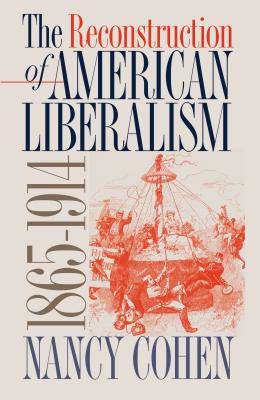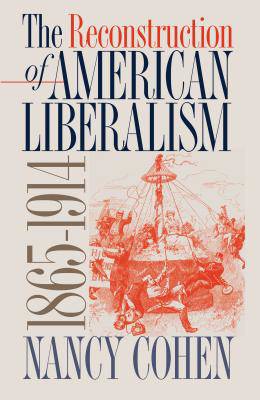
- Afhalen na 1 uur in een winkel met voorraad
- In januari gratis thuislevering in België
- Ruim aanbod met 7 miljoen producten
- Afhalen na 1 uur in een winkel met voorraad
- In januari gratis thuislevering in België
- Ruim aanbod met 7 miljoen producten
Omschrijving
Tracing the transformation of liberal political ideology from the end of the Civil War to the early twentieth century, Nancy Cohen offers a new interpretation of the origins and character of modern liberalism. She argues that the values and programs associated with modern liberalism were formulated not during the Progressive Era, as most accounts maintain, but earlier, in the very different social context of the Gilded Age.
Integrating intellectual, social, cultural, and economic history, Cohen argues that the reconstruction of liberalism hinged on the reaction of postbellum liberals to social and labor unrest. As new social movements of workers and farmers arose and phrased their protests in the rhetoric of democratic producerism, liberals retreated from earlier commitments to an expansive vision of democracy. Redefining liberal ideas about citizenship and the state, says Cohen, they played a critical role in legitimating emergent corporate capitalism and politically insulating it from democratic challenge.
As the social cost of economic globalization comes under international critical scrutiny, this book revisits the bitter struggles over the relationship between capitalism and democracy in post-Civil War America. The resolution of this problem offered by the new liberalism deeply influenced the progressives and has left an enduring legacy for twentieth-century American politics, Cohen argues.
Specificaties
Betrokkenen
- Auteur(s):
- Uitgeverij:
Inhoud
- Aantal bladzijden:
- 332
- Taal:
- Engels
Eigenschappen
- Productcode (EAN):
- 9780807853542
- Verschijningsdatum:
- 11/03/2002
- Uitvoering:
- Paperback
- Formaat:
- Trade paperback (VS)
- Afmetingen:
- 168 mm x 226 mm
- Gewicht:
- 476 g

Alleen bij Standaard Boekhandel
Beoordelingen
We publiceren alleen reviews die voldoen aan de voorwaarden voor reviews. Bekijk onze voorwaarden voor reviews.









